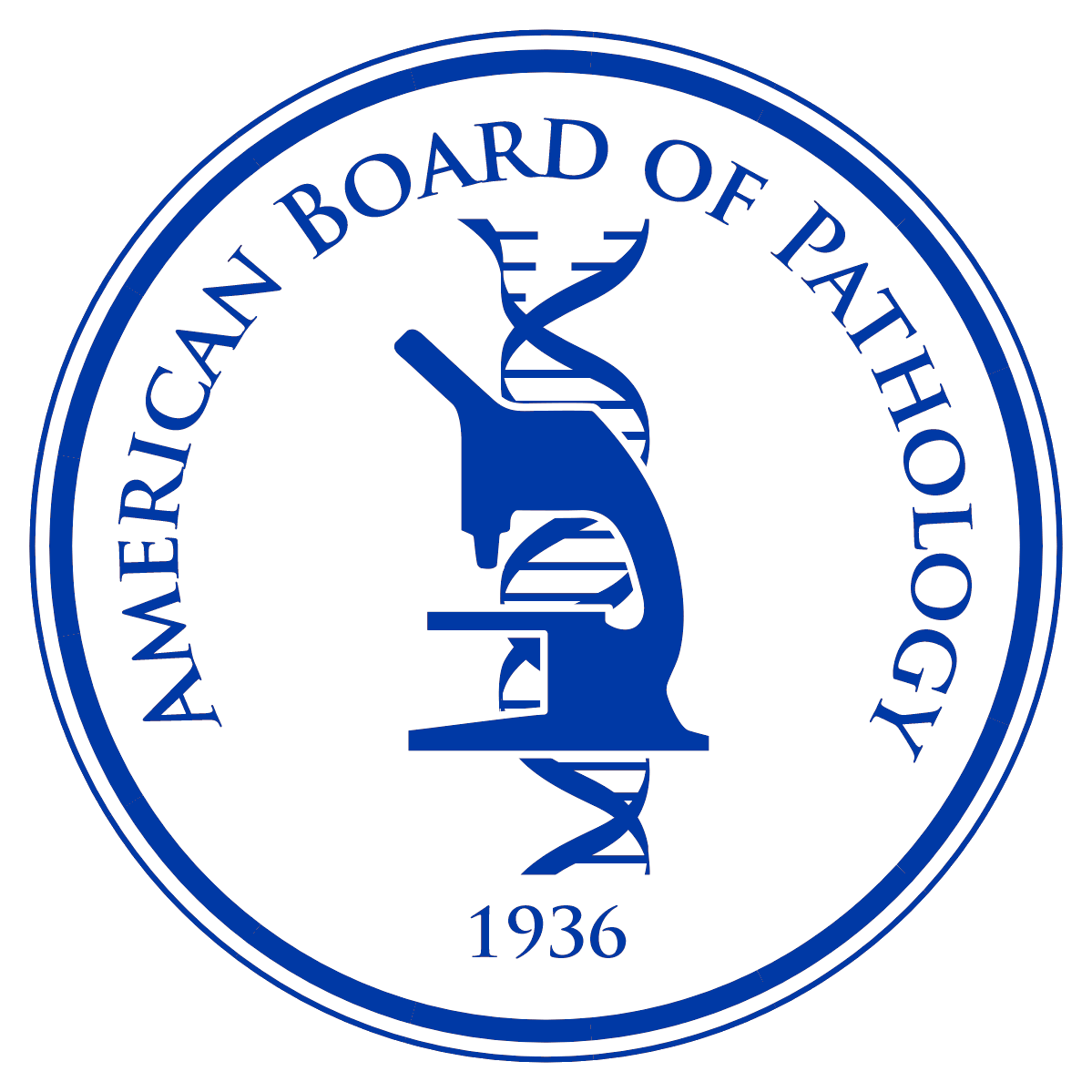About Certification

About Certification
Requirements for Certification
Exam Preparation
Primary Exam Description
Exam Dates, Deadlines and Fees
Exam Blueprints and Daily Schedules
Exam Content Specifications
Subspecialty Exam Descriptions
Exam Dates, Deadlines and Fees
Exam Blueprints and Daily Schedules
Exam Content Specifications
Focused Practice Designations
Booklet of Information
About Certification
Primary certificates are issued in:
Anatomic and Clinical Pathology
Anatomic Pathology
Clinical Pathology
Anatomic Pathology/Neuropathology
Subspecialty certificates are issued in:
Blood Banking/Transfusion Medicine
Chemical Pathology
Clinical Informatics (in cooperation with the American Board of Preventive Medicine)
Cytopathology
Hematopathology
Dermatopathology (in cooperation with the American Board of Dermatology)
Forensic Pathology
Medical Microbiology
Molecular Genetic Pathology (in cooperation with the American Board of Medical Genetics and Genomics)
Neuropathology
Pediatric Pathology
For the current requirements for board certification, please see the Booklet of Information.
Certification
The granting of a certificate to a physician by the ABPath denotes that the pathologist is a physician who:
Has successfully completed a graduate medical education program in pathology or a pathology subspecialty accredited by the Accreditation Council for Graduate Medical Education (ACGME) or a program in pathology accredited by the Royal College of Physicians and Surgeons of Canada (RCPSC).
Had the Program Director verify that the resident has demonstrated the six ACGME competencies and Milestones and is competent to practice safe and effective medicine without direct supervision.
Successfully completed a voluntary evaluation process designed and administered by the ABPath to assure the public and other physicians that, at the time of certification, the candidate had the knowledge, skills, judgment and other abilities that the ABPath deems important for the practice of pathology.
Pathology is a broad discipline; therefore, it is appropriate that some certified pathologists seek greater knowledge and expertise in one or more of the subspecialties of pathology. Pathologists with subspecialty certification may choose to limit their activities entirely or in part to a specific area of competence or they may place special emphasis on it in their practices. The achievement of subspecialty certification does not reflect on the ability of other pathologists to practice in that area.
Beginning in 2006, all primary and subspecialty certificates issued by the ABPath are required to be maintained in the Continuing Certification (CC) Program. Continuing certification status is dependent upon current participation in CC by meeting all requirements and deadlines of the program. Certificates issued prior to 2006 are life-time certificates and do not require participation in CC; however, voluntary participation in CC is strongly encouraged. (See the CC Booklet of Information.)
Designation as a Diplomate
Recipients of ABPath certificates are designated as Diplomates of the ABPath, and are entitled to so designate themselves in an ethical manner. All Diplomates are governed by policies for use of certification, and for expiration and revocation of certificates as the Board may, from time to time, adopt. Diplomates of the ABPath are required to accurately state their certification status in curriculum vitae, publications, directories, letterhead, etc. A diplomate with a time-limited certificate whose certificate has expired must not claim to be board certified, and all descriptions of certification status must be modified accordingly. If an individual represents that he/she is certified by the ABPath when such is not the case, the ABPath will notify appropriate authorities, including but not limited to hospital, healthcare, and credentialing organizations, licensing boards, and law enforcement agencies.

